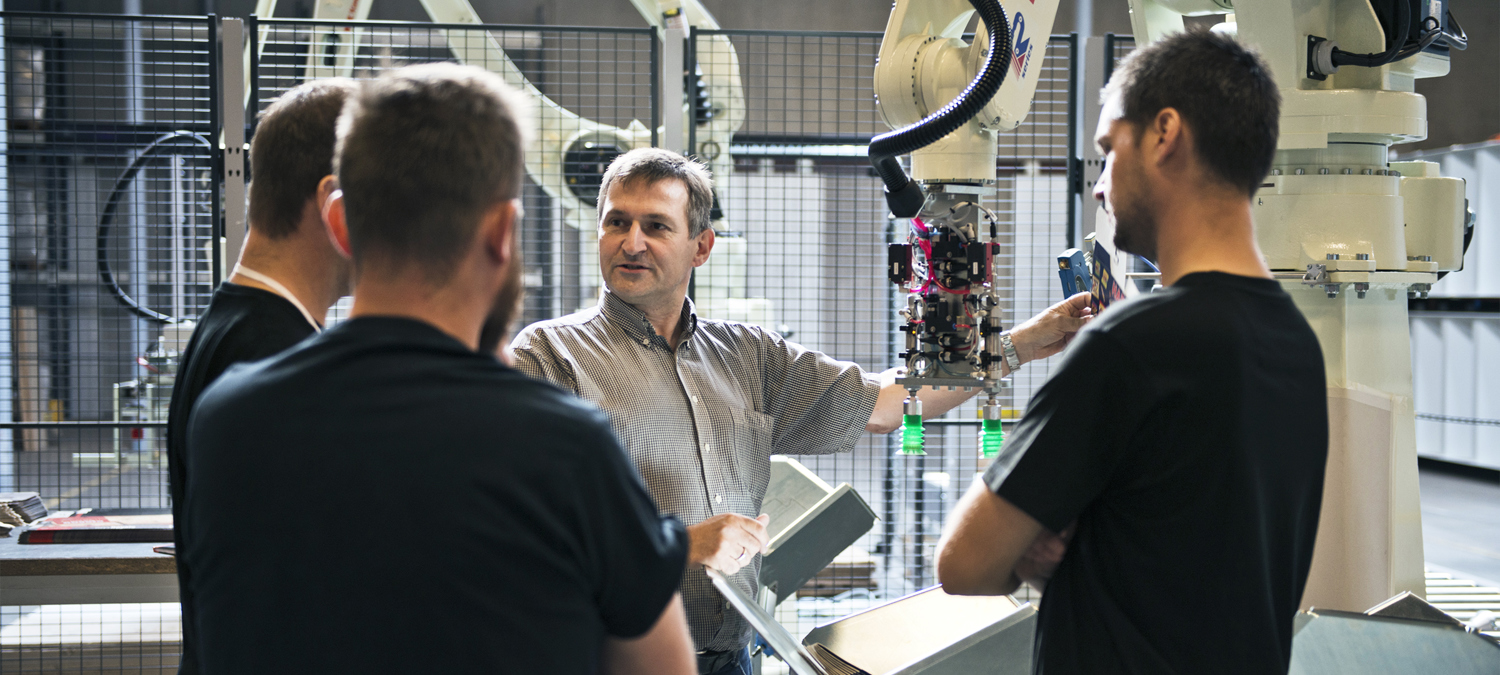BILA increases exports and approaches the billion mark

In line with most companies, the COVID-19 pandemic has presented significant challenges for the automation conglomerate BILA. Despite this, the conglomerate has grown and now employs approximately 500 staff. The group's revenue is approaching 1 billion Danish kroner, and the future looks promising with a robust order book. One day, they are constructing solutions for the production of wind turbine blades over 100 meters in length, and the next day, they are optimising the assembly of small electro-gearboxes for actuators.
BILA's expertise in automation is extensive, and its broad economic foundation has proven to be a significant strength during the pandemic.
In the recently published annual report, both BILA's top and bottom lines grew. Overall, there is substantial progress at the group level, albeit with fluctuations in various business areas due to COVID-19 effects and significant development activities. The majority of the growth is driven by increased exports, with foreign sales accounting for approximately half of BILA's turnover in the fiscal year 2021, ending on September 30, 2021.
The automation projects underway when COVID-19 struck were completed, but many companies then paused and were more cautious about initiating new projects. The financial results are satisfactory. However, one key metric needs improvement, and that is the bottom line, which is expected to be significantly higher in BILA's next annual report, according to Johan Blach Petersen, Chairman of BILA's Board.
The automation industry is consolidating in these years, and BILA, as one of Scandinavia's largest automation companies, is looking for more strategic acquisitions in the coming years.
Already holding a majority stake in PJM A/S, REO-PACK, Dan Palletiser, and Blaaholm's service department, BILA's product range has expanded, now encompassing technology to automate production, logistics, packaging, and storage in any industry. BILA aims to continue its growth, both organically and through acquisitions:
"We have become quite substantial in recent years, and we have a considerable potential to realise when everything is fully aligned, and the concepts truly roll out and create synergy. The process should not be rushed, as we also need to preserve the workplace culture while adding financial strength and business development. BILA Group is starting to reach a size that matches the requirements of large Danish companies, including global delivery and servicing. The size also provides better opportunities for technology development, project management, employee development, and financial robustness," says Johan Blach Petersen, Chairman of the Board at BILA.
Labor Shortage Boosts Robot Sales
For several years, BILA has contributed to increasing earnings and productivity in several leading Danish industrial companies. Robots and automation have gained extra momentum in a time when many businesses struggle to fill positions. One solution to this challenge is to enhance individual productivity and create more attractive jobs with a healthy work environment.
"We see that the entire industry is focused on increasing the degree of automation because it brings benefits on many levels: it is about addressing the shortage of labor but also ensuring competitiveness despite rising energy prices, material costs, labor expenses, and freight rates,"
Jan Bisgaard Sørensen, CEO, BILA Group
Although BILA, with its automation solutions, helps alleviate capacity challenges and labour shortages in several manufacturing companies, the company itself feels the increased competition for labor in Denmark. Nevertheless, the company has largely succeeded in attracting strong profiles to its locations in 10 places across Denmark: Nykøbing Mors, Herning, Aalborg, Randers, Sønderborg, Svendborg, Varde, Mariager, Vemmelev, Fårevejle.
Sustainable Production at Home and Abroad
With 34 years of experience as a provider of production optimisation and equipment, BILA has expanded its customer base year after year to include more and more of Europe's major manufacturers of food, electronics, wind turbines, furniture, etc. This includes companies such as Danfoss, Linak, Lego, Arla, Grundfos, Lantmännen Unibake, Procter & Gamble, Unilever, Gelita, Polarbröd, Salmar, Carlsberg, Kamstrup, Plus Pack, Scandi Standard, Crispy Food Nordic, Tvilum, Haribo, KiMs A. Espersen, Dragsbæk, Bang & Olufsen, Rosborg Krydderurter.
"We follow the large companies onto the world market when they establish local production in other countries. We experience an increase in being chosen as a supplier for manufacturing companies in neighbouring countries. E.g., we automate salmon processing in Norway and bread production in Sweden. We install many systems in Eastern Europe, where especially Poland is a large market for us,"
Per Bech Rasmussen, CEO, BILA Automation
Challenges in supply chains create problems for many production companies, impacting their delivery reliability and profitability. This has led to a trend where manufacturers focus on dual sourcing and more local production with sustainable benefits.
"When you move production from China to, for example, Denmark, both the work environment and sustainability improve. It's not just about saving two percent of fuel on a ship but about production in the country happening with significantly less waste and overall lower resource consumption," says Johan Blach Petersen, Chairman of the Board, BILA Group.
Published February 2022.
Get 360 degree consultation about your setup, and let us help you elevate your automation aspirations to the next level.
You can contact us at +45 97 71 00 44.
Contact us
We are ready to answer all your
questions and have a non-committal
conversation about the possibilities
with production optimisation in your company.
